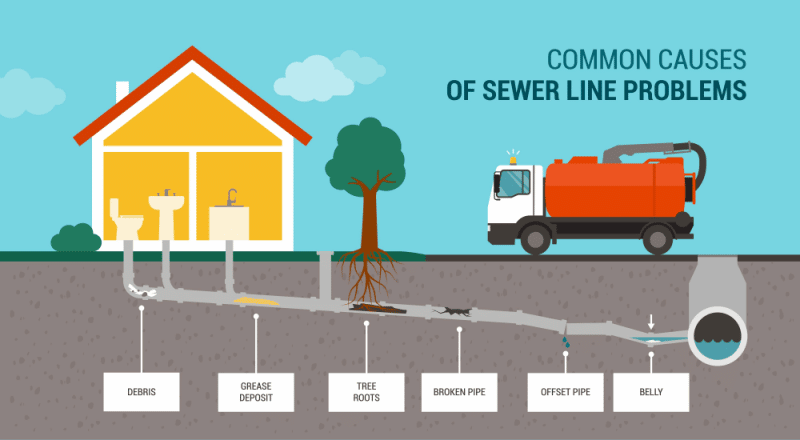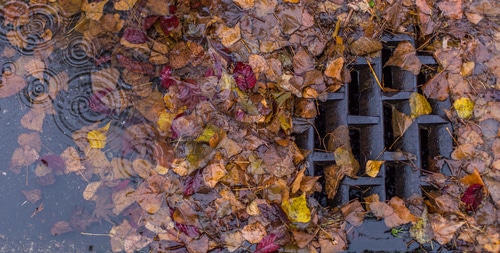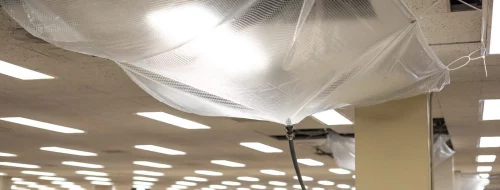How They Work And What To Do When They Don’t!
Indoor plumbing and wastewater management are amazing modern conveniences, but they can also cause big problems when they fail. So what is the difference between a sewer vs storm drain? There are several different types of wastewater management systems in and around your property, each with unique features and issues.
Here is what home and commercial property owners need to know about sewer lines and storm drains, and the nasty types of water damage that each can cause.
Sewer Lines
Your home or business sanitary sewer line takes dirty water (including sewage from toilets) into the municipal sewer system. Each sink, toilet, and other plumbing fixture drains to the lateral line that is typically under your basement. The lateral line connects your property to the main municipal sewer line, which connects a wastewater treatment plant. The sewage is then treated before it is released to a nearby river or lake.
Clogs in property sewage pipes and lateral lines can occur when items like diapers, wipes, and other products get stuck on their way from your toilet or sink to the sewer. Tree roots can also clog lateral lines. When these clogs happen, dirty waste water will not drain to the sewer, and damaging, disgusting backups can occur.

Storm Sewer System and Storm Drains
A storm drain or stormwater system collects and carries rainwater or melting snow. These are the drains at your curbs, in parking lots, and basement floors. These drains and pipes carry the water through an underground system that ends up in nearby ditches, rivers and lakes – without treating the water. Because of this, storm drains are not designed to accept sewage or other hazardous waste.

Storm drains can get clogged by unusually heavy rains or accumulated debris like leaves, sticks, garbage or tree roots. These clogs can cause basement flooding. Property owners are typically responsible for storm water drain maintenance and repair up to where their drain meets with the municipal line.
Combined Sewers
In Cook county and the overall Chicago area, many communities have combined sewers. In this type of plumbing system, a single pipe transports wastewater (including sewage) and stormwater. In combined sewer systems, all the contents of the sewer and storm water pipes go to the wastewater treatment plant. Combined sewer systems are not very efficient, and can experience problems like back ups when there are large amounts of storm water, such as during heavy rain storms.
Why You Should Not Clean Up Yourself After Any Type of Water Damage
Any of these three system types can get clogged, damaged, or just overwhelmed. These situations often result in messy back-ups into homes or businesses. If you are faced with a situation like this, you may be considering cleaning it up yourself, but there are several reasons why this is not a good idea.
It’s easy to understand why you should not clean up after a sewage or combined sewer system backup yourself. A sewage backup at your home or business is considered Category 3 black water. It quickly spreads dangerous contaminants across floors and carpets, wicks into drywall, and soaks deep into the structural materials at your property. Even after it has receded, it leaves behind a hazardous environment that can impact the health of your family, residents, employees, and customers.
But what about stormwater? Stormwater is also dangerous, as it is untreated water. Stormwater carries disease-causing bacteria and viruses, and other forms of pollution that can affect human health such as carcinogens like heavy metals.
As a property owner, it’s important to take these types of water damage seriously – the health of many people and your investment depend on it. Thankfully, it’s easy to get reliable, expert help. Trained water damage restoration professionals know how to deal with both sewage and stormwater back-ups – here are three ways that they can help you through these difficult messes.
3 Ways Water Damage Restoration Professionals Can Help
Clean-Up Will Be Done Right
At McMahon Services and Construction, we carefully follow all CDC, EPA and OSHA cleaning processes. Our industry-certified teams use the right personal protective equipment, state-of-the-art tools, and advanced techniques to sanitize the surfaces and even the air at your property, eliminating viral and bacterial contamination.
We Work With Your Insurance Company
Most sewage backup and other water damage is covered by your homeowners, rental property, or business insurance. We regularly partner with local and national insurance carriers and agencies, so we understand how to navigate the complicated claims process, making sure you get the help you are entitled to.
We Are Ready To Help Right Now
At McMahon Services and Construction, we have a 24/7 emergency line, and are always ready to handle any water damage issues, day or night. Even if your business has a maintenance team, we have the knowledge, equipment, and extra hands needed to make clean-up quick and efficient. Our highly trained team of technicians can quickly take care of sewage back-ups and all other forms of water damage at your home or business.
Fortunately, preventative maintenance and proper use can avert many of these problems, but sudden storms and floods can’t be controlled by anyone. If you are faced with overwhelming and unexpected sewage or stormwater back-ups at your property, call McMahon Services and Construction to get the help you need, right away.







0 Comments